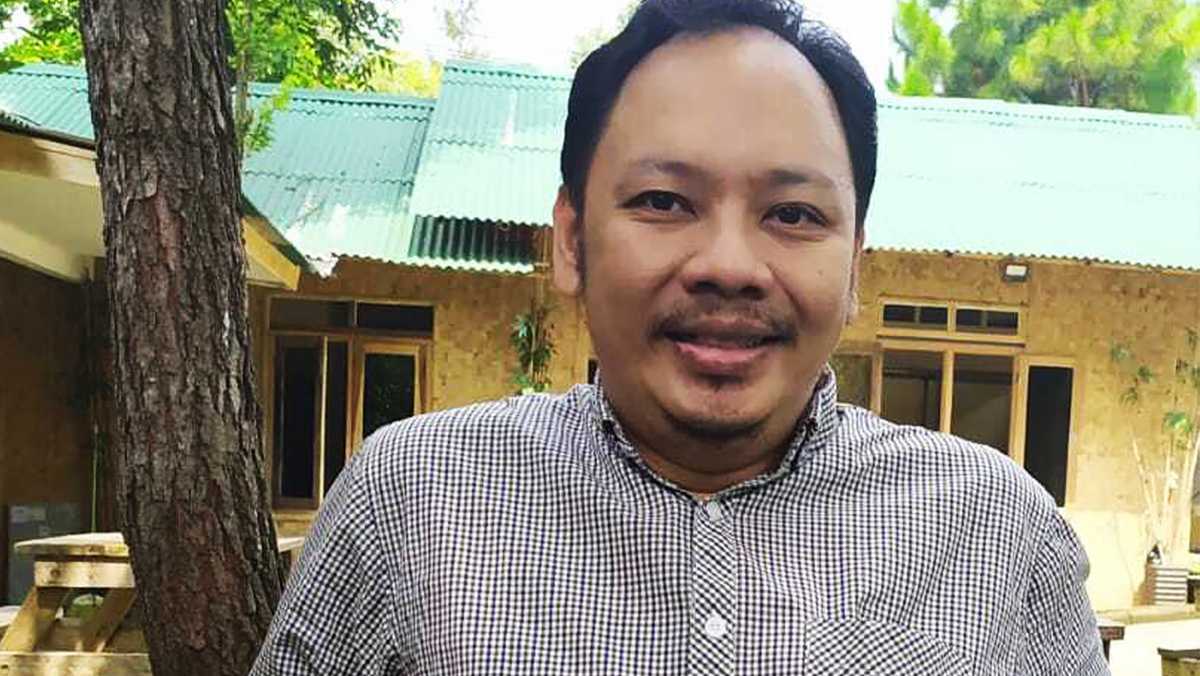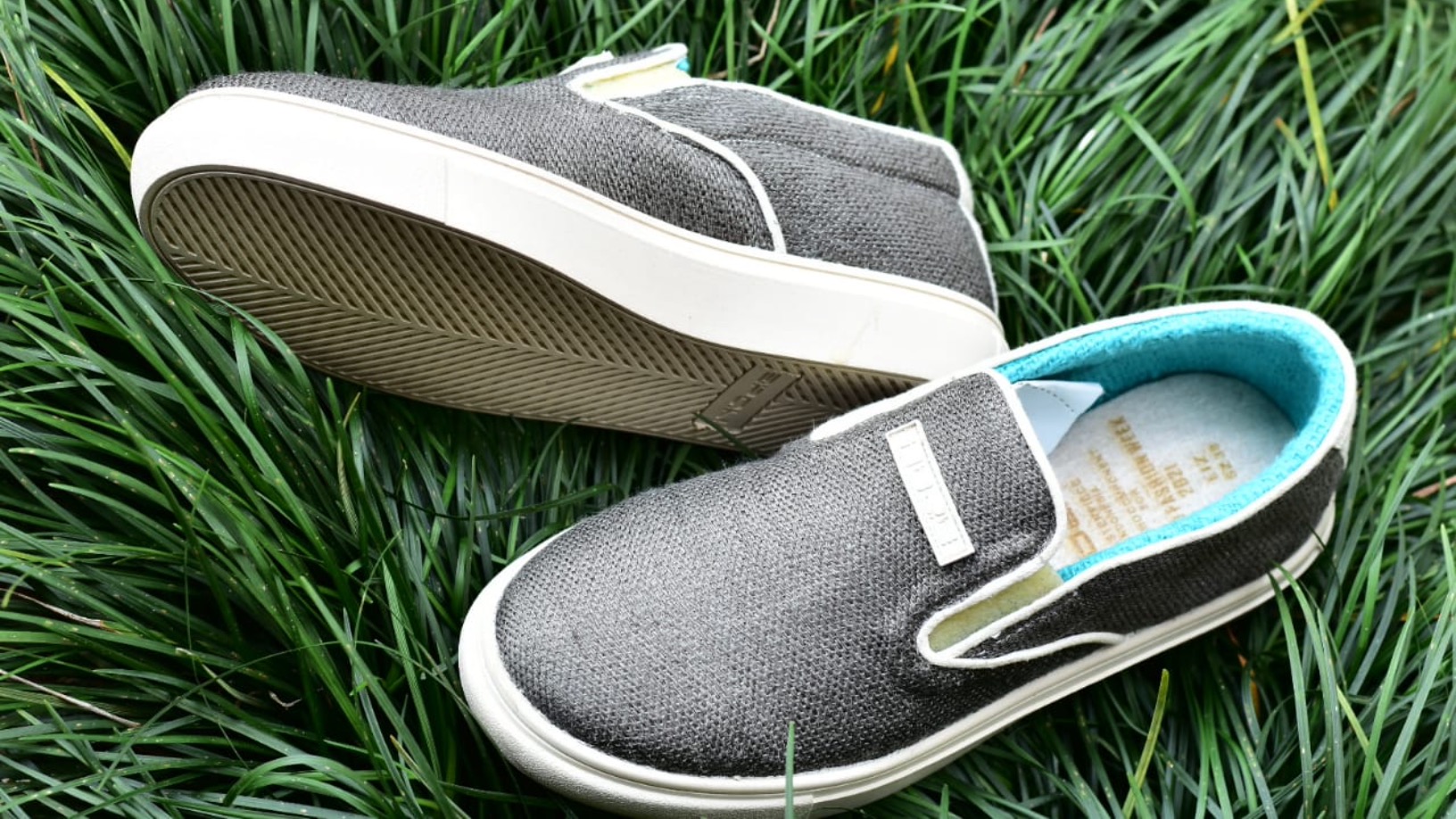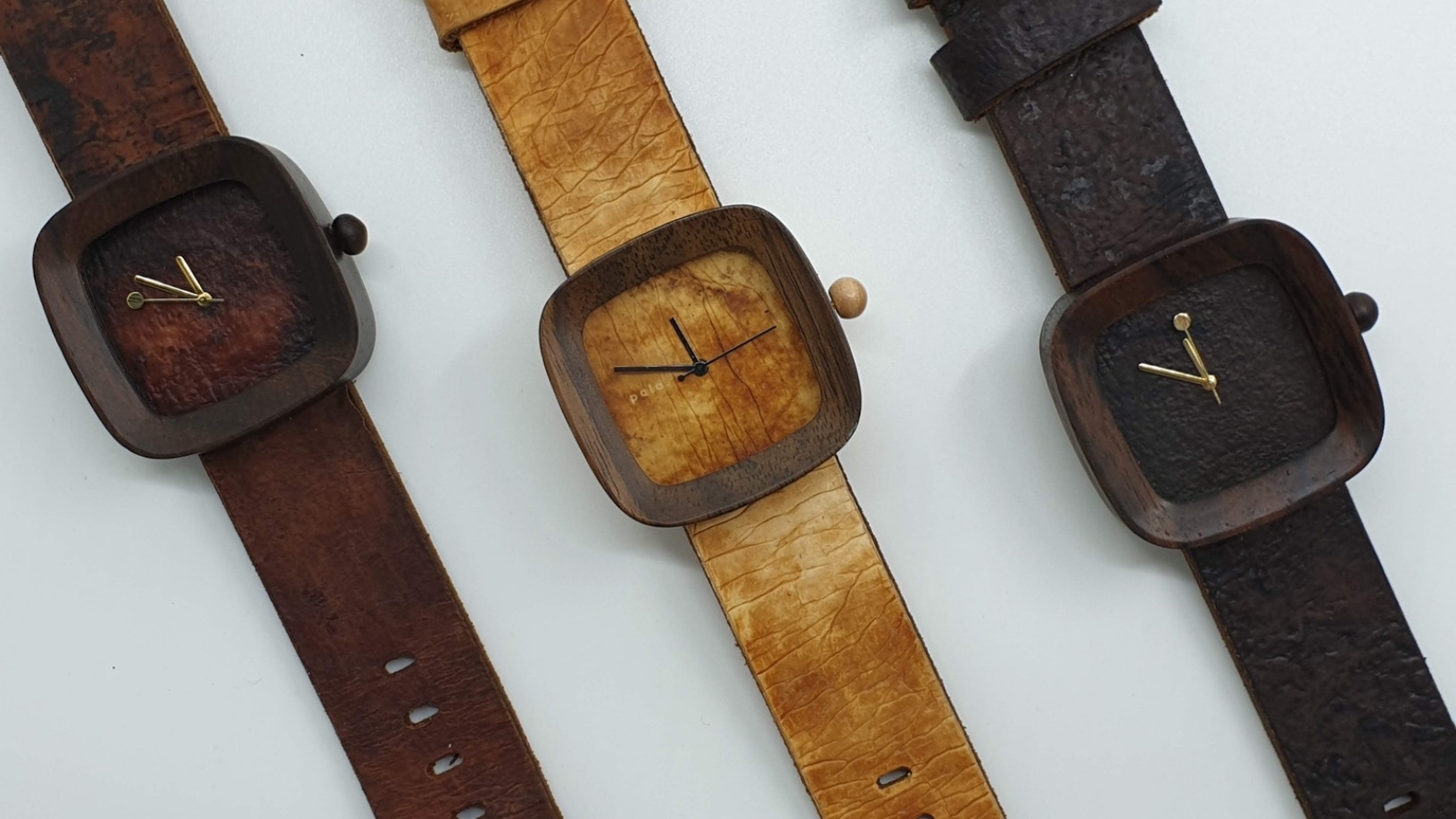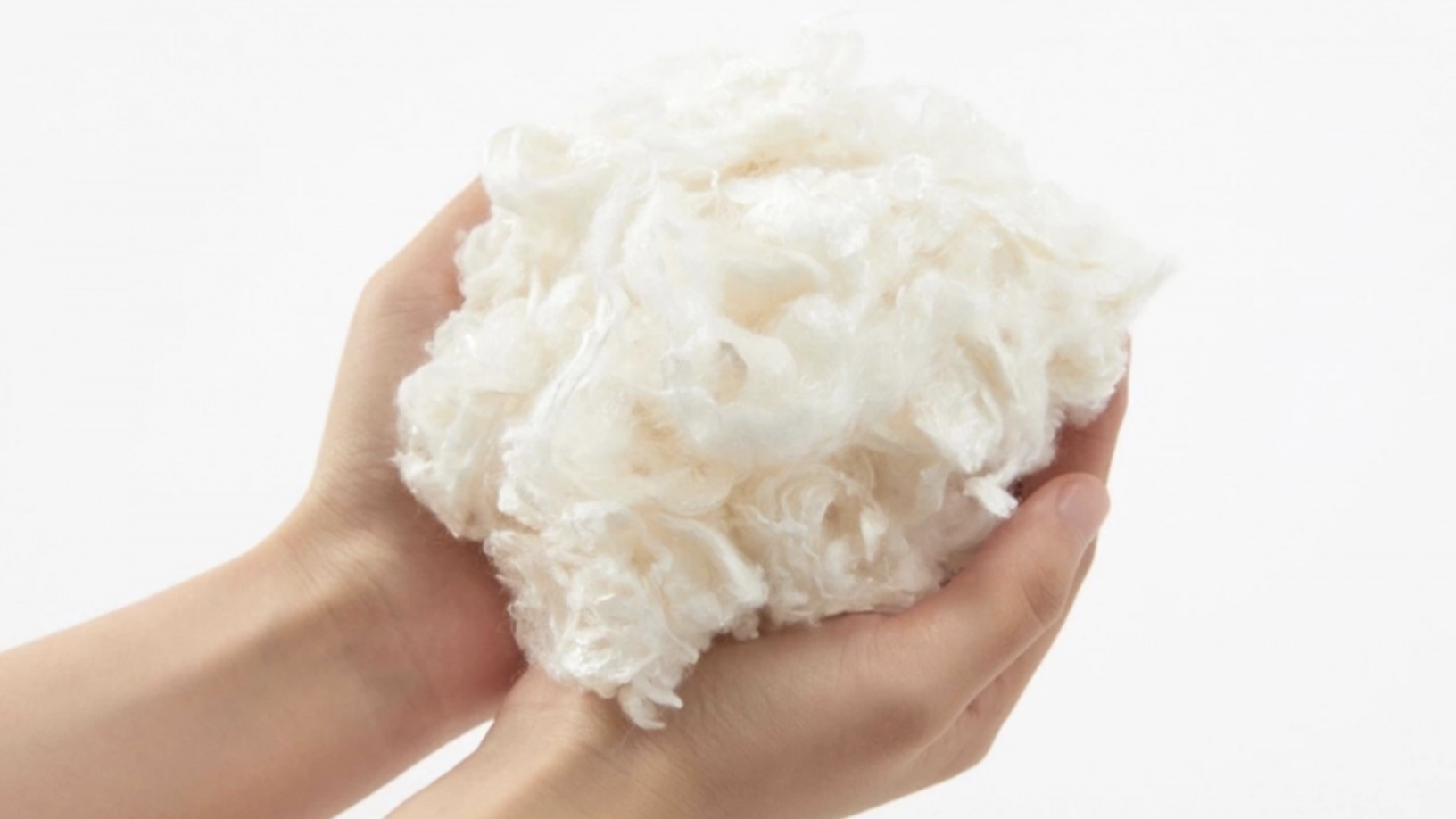In the last few years, greater environmental awareness and the rise of conscious fashion have prompted manufacturers to explore new materials and innovations. In Indonesia, startups like Mycotech and Bell Society have created vegan leather from mushrooms and cellulose obtained through bacterial fermentation. A fellow young Indonesian brand, Node, has now ventured into sustainable fashion, with biodegradable vegan shoes and sandals made from farm waste and other natural materials.
Taking their name from an abbreviation of the phrase “no deforestation,” Node is the first company in Indonesia to use rice husks, a common agricultural waste, to create a durable yet biodegradable outsole for shoes and slippers. In addition, the company uses fabrics made out of other agricultural by-products, over-produced commodity crops or hardy crops that can grow in less arable land.
By harnessing resources that might otherwise not be utilized, Node hopes to help farmers and agricultural players reap more income from their existing cultivated land and green less arable land and, at the same time, reduce deforestation.
“Many synthetic fabrics are created using crude oil, which requires mining. Meanwhile, natural fibers [used in place of synthetic fabrics] are often grown in large plantations, and forests have to be cleared for these plantations,” David Chrisnaldi, CEO of Node’s parent company and manufacturer PT Triangkasa Lestari Utama, told CompassList. “By using agricultural waste and growing fiber crops on marginal land [to make Node shoes], we hope that people living near forests will no longer have to cut trees to earn an income."
In 2019, Node launched its first biodegradable footwear product, the Sock Sandal, which combines the familiar shape of rubber slippers with fabrics used in traditional footwear. The following year, it launched Bio Sneakers, stylish shoes made almost entirely of plant-based materials. Speaking at the virtual launch of a special edition Bio Sneaker last month, Minister of Tourism and Creative Economy Sandiaga Uno praised the Node product range for its environmental ethos. “We truly appreciate this product because it puts forward sustainability and eco-friendly concepts,” he said.
Bootstrapped since 2012, the company and has not raised funds from investors, nor does it have any investor funding lined up for the next 12 months. Instead, it is looking to fund its materials research and growth through supplying sustainable shoe components and design prototypes to other footwear players.
Biodegradable yet durable
When a material is biodegradable, it normally breaks down faster. So, for Node to make shoes out of biodegradable natural materials yet durable, it had to employ new manufacturing processes. The company’s R&D has resulted in many new inventions in bio-components and several patents.
For instance, the outsoles of Node shoes are constructed from biosilica polymer made from rice husks, pine resin and natural rubber. “If we simply mixed the [different natural] ingredients into a polymer, it would result in a less durable outsole," Chrisnaldi explained. To tackle this and obtain a hard-wearing blended substance that would not break down easily, Node worked with the Indonesian Ministry of Agriculture’s post-harvest research department to develop a new compatibilizer, an additive to enable different organic materials to bond together into a strong polymer. “Using this compatibilizer, we achieved a durability [for Node outsoles] comparable to motorcycle tires.”
We hope that people living near forests will no longer have to cut trees to earn an income

Fabric components, such as the Bio Sneakers’ cloth upper and the outer layer of the Sock Sandal, are made out of durable fibers from plants like ramie (Boehmeria nivea) and kenaf (Hibiscus cannabinus). These plants have been grown locally in Indonesia as fiber crops for a long time.Chrisnaldi hopes that they can be cultivated more widely in less arable land, reversing the damage caused by the clearing of forests.
Chlorophyll and spices are used as dyes and colorings for the shoes. Even the thread used to stitch the components together is made from natural fibers. Chrisnaldi told CompassList that their supplier does not provide them with technical data on the strength of the thread, so to ensure durability, Node reinforces the thread with a proprietary natural adhesive that it makes out of eucalyptus.
Although many shoe manufacturers are exploring eco-friendly materials and methods, Chrisnaldi believes that many fashion products labeled as biodegradable may actually contain microplastics or synthetic polymers that impede the degradation process. “Our products are free of such materials, and our shoes have been certified to be safe when used to make compost,” Chrisnaldi said.
Node has tested the biodegradability of its Sock Sandal in-house by chopping the footwear into small pieces and burying it in soil. Most of it had decomposed after one year. Node submitted the soil sample for testing at the Indonesian Ministry of Agriculture’s soil and fertilizer testing lab, which certified that no microplastics and only negligible traces of heavy metals were found in it.
Chrisnaldi believes that Node can work more with farmers and agribusinesses to process and extract value from various kinds of agricultural waste. “There is business potential in creating an agricultural waste management system that produces fashion goods, with environmental conservation as the end goal,” Chrisnaldi said.
Shoes and components
Node and its parent company, Triangkasa, have not secured investor funding, but Chrisnaldi said he is exploring this. “Making biodegradable shoes and components is an industry with good margins, so we hope to attract investors. Some of them have contacted us before, but nothing has been confirmed yet."
Chrisnaldi admits that running his business has not been easy. When he first started Triangkasa in 2012, the company made special insulating soles used in safety shoes for workers handling high-voltage cables. “As an [unknown] Indonesian company, it takes a long time to build up trust among prospective buyers in the industry,” Chrisnaldi said, recalling his company’s struggles to compete against established foreign suppliers.
There is business potential in creating an agricultural waste management system that produces fashion goods
Chrisnaldi foresees a similar uphill battle for Node, which is Triangkasa’s first foray into consumer footwear. Currently, most of Node’s buyers are from government research institutions linked to organizations that helped Node develop its product.
Chrisnaldi says that he’s “not convinced yet” that his company can break even on research costs just by selling shoes. Instead, Chrisnaldi sees coupling shoe retail with selling components to other manufacturers as a more realistic way to break even because, with the latter, the company gets cash upfront with every order. Node is already working with Linax, a New Zealand company manufacturing eco-friendly shoes. So far, it has supplied outsoles, insoles, and filler foam components to Linax, all made with organic materials.
Response to Node’s components has been positive, Chrisnaldi said. The startup is already in talks to supply its plant-based shoe components to other manufacturers, including one in the US. However, Chrisnaldi declined to name these companies because the deals have not been signed yet. In the future, he hopes to supply Node’s eucalyptus-based adhesive to other companies as well.
“We’re not restricting ourselves to selling shoes,” Chrisnaldi said. “As long as our goal to reduce deforestation can be achieved, we’re open to working with anyone, including supplying components [to them].” In addition, Node is open to selling its prototypes and shoe concepts to manufacturers looking to offer more eco-friendly products in their lineup.
This does not mean that Node will completely give up on making its own shoes. Backed by support from various government agencies, Node has received opportunities to exhibit its products in local exhibitions and fairs, Chrisnaldi said. Node will also represent Indonesia in World Fashion Week, an international fashion and design event that will take place in Paris in April 2022.












